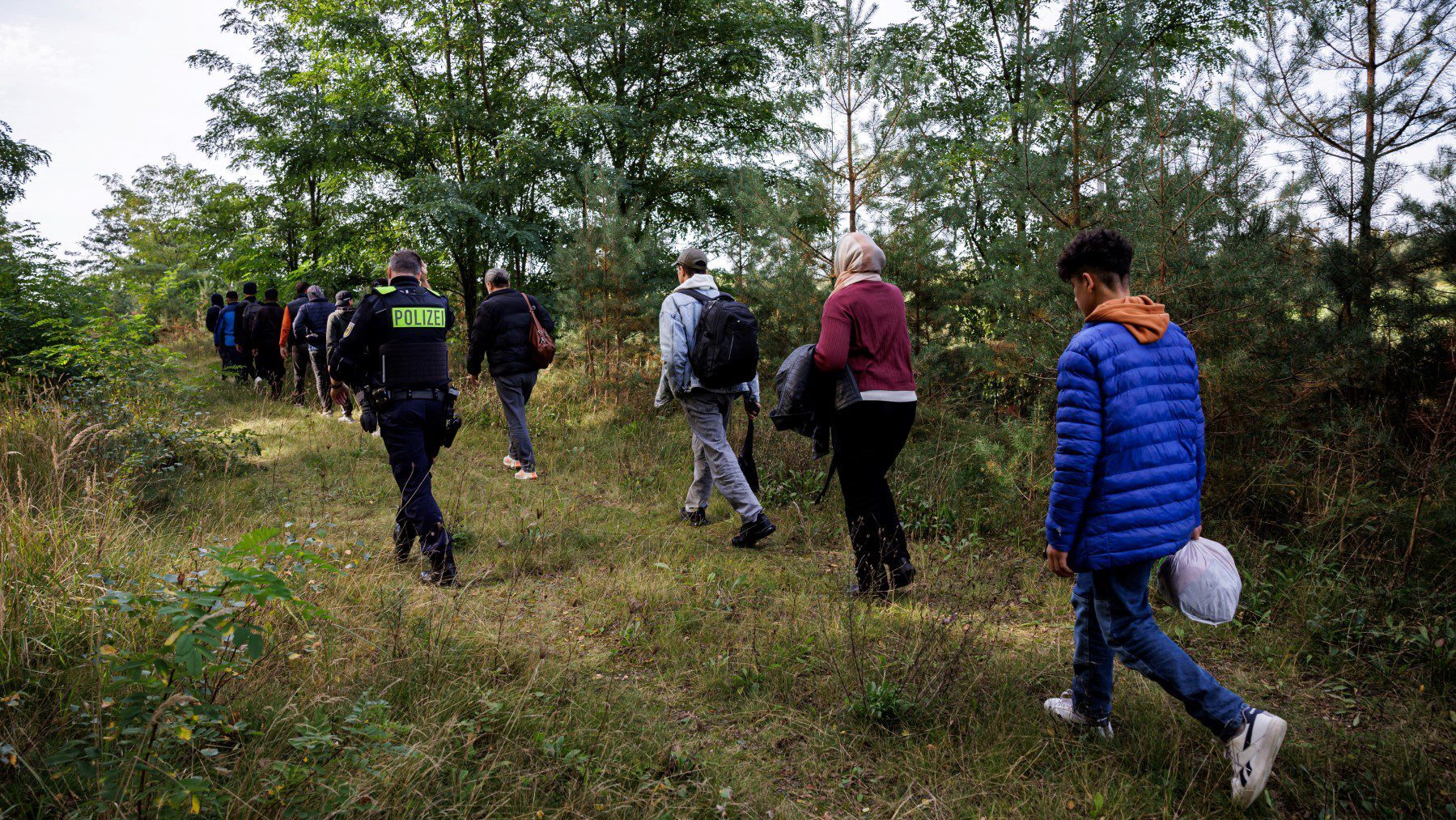
Photo: JENS SCHLUETER / AFP
Crisis talks held in Germany about migration have not yielded any results—but the opposition centre-right CDU is insistent that authorities should be allowed to reject some migrants at the border. While the governing Social Democrats and the liberal FDP are willing to accept tougher measures against illegal immigration, their coalition allies, the Greens, are hesitant.
The talks on Tuesday, September 4th, were held in the aftermath of the terror attack in the western German city of Solingen two weeks ago, in which a 26-year-old Syrian man murdered three festivalgoers and injured another eight people. There has been a spate of knife attacks in recent months committed by migrants, but what made the incident in Solingen particularly worrying is the fact that the perpetrator should have been deported last year.
A recently published police report also gave a shocking account of the rise of crime in Germany.
Reflecting the concern about migration among German voters, anti-immigration parties—the right-wing AfD and the left-wing Bündnis Sahra Wagenknecht— jointly received 49% of the votes at the regional elections in the state of Thuringia on September 1st, and 42% in the state of Saxony.
The centre-right CDU has also tried to appear tougher on migration since being forced into opposition following the 2021 federal elections. The party won the elections in Saxony and came second behind AfD in Thuringia.
Migration, security, and crime are high on the political agenda. The federal left-liberal government announced a list of measures last week aimed to address the crisis. The measures include a ban on carrying knives at festivals, sports events, and other similar public events; the refusal of benefits payments to migrants set to be deported to other countries in the European Union; more police powers to address suspected Islamist threats; and a promise that the government would try to “remove hurdles” to quicker deportations.
The announcement seems more like a desperate attempt to show something is being done rather than attacking the root cause of the problem: a failure to stop illegal immigration.
Radically reducing illegal immigration is what the CDU and its Bavarian counterpart, the CSU, are now proposing. The centre-right alliance wants the talks on migration to centre on ways to significantly curb the numbers of asylum seekers entering the country—not just tightening asylum laws, which has been the focus of the government.
Thorsten Frei, a senior CDU lawmaker said it was necessary “that there are not only border checks, but that there are actually rejections at the border.”
As of December last year, there were nearly 250,000 people in Germany slated for deportation, while only around 16,000 had actually been deported during the entire year, signalling how the country’s lax migration and deportation policies have completely failed.
Meanwhile, more than 350,000 people applied for asylum in Germany in 2023, the highest number since 2016.
Though the cross-party meeting on Tuesday yielded no decisions, and more talks are to follow, German media reports suggest that the Social Democrats and the liberal FDP were open to the suggestions by the CDU even if they did not agree with them completely.
However, their coalition allies, the Greens, made it clear they would not support measures that aim to reject some asylum seekers at the border. One of their politicians, Irene Mihalic, said rejections of asylum seekers at the border are not permissible under EU law, and that it would practically be impossible to carry them out.
However, Thorsten Frei argued that under Article 72 of the EU Treaty, member states are responsible “for the maintenance of public order and the protection of internal security.” CDU leader Friedrich Merz previously warned that the “security of the country is in danger.” Limiting immigration must be the number one topic on the agenda, he said.
„Wenn die #Ampel meint, sie müsse ihre Politik nur besser erklären, dann wünsche ich gute Reise. Ihre Politik ist gescheitert und muss korrigiert werden. Die Grenzen müssen besser geschützt werden. Und solange das #Dublin-System nicht funktioniert, müssen wir zurückweisen.“ ™ pic.twitter.com/PrACgyysHX
— Friedrich Merz (@_FriedrichMerz) September 2, 2024
Whether words will actually turn into action remains to be seen, as all mainstream parties—including the CDU—have overseen the uncontrolled influx of immigrants in the past ten years, leading to a rise in crime.
